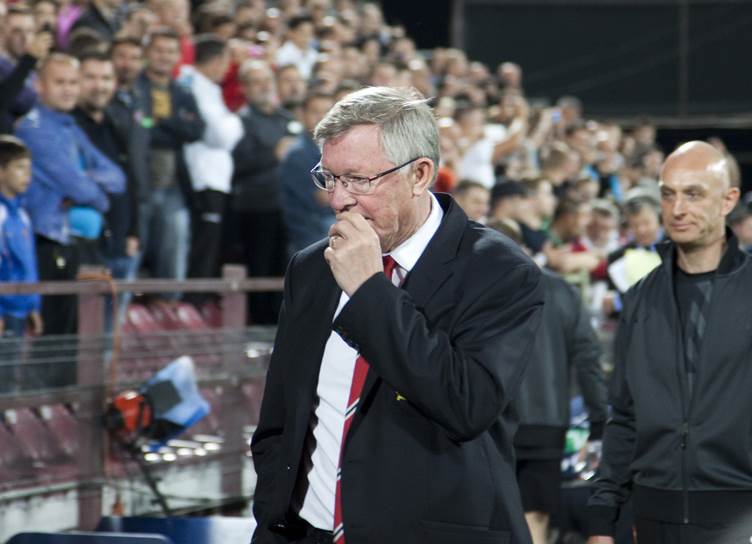Legendary Football Managers: Leadership Lessons from the Sidelines
In the high-stakes world of professional football,

In the high-stakes world of professional football, the role of the manager is both crucial and complex. Legendary figures like Sir Alex Ferguson, Johan Cruyff, and Pep Guardiola have not only achieved remarkable success but have also left an indelible mark on the sport. Their leadership styles offer invaluable lessons that extend beyond the pitch. This article delves into the strategies and qualities that made these managers iconic, providing insights into their methods and the broader principles of effective leadership. For those interested in exploring another form of excitement and strategy, check out the Hot Hot Fruit Slot.
The Role of a Football Manager
A football manager is responsible for overseeing all aspects of a team's performance, both on and off the field. This includes:
- Tactical Planning: Developing game strategies and formations.
- Team Selection: Choosing the starting lineup and substitutes.
- Training Management: Organizing and supervising training sessions.
- Player Development: Fostering the growth and improvement of players.
- Matchday Decisions: Making real-time decisions during games, such as substitutions and tactical changes.
The manager's role is pivotal in shaping the team's success. Their decisions directly impact performance, morale, and the overall direction of the club. A manager must balance short-term results with long-term development, often under intense scrutiny from fans, media, and club executives.
Leadership Styles of Legendary Managers
Sir Alex Ferguson
Background: Sir Alex Ferguson is widely regarded as one of the greatest football managers of all time. During his 26-year tenure at Manchester United, he won 13 Premier League titles, 5 FA Cups, and 2 UEFA Champions League trophies.
Leadership Style: Ferguson's approach was characterized by his authoritative style, ability to adapt, and emphasis on discipline. He was known for his "hairdryer treatment," a no-nonsense approach to managing players, which involved direct and often intense communication to motivate and correct them.
Key Lessons:
- Resilience: Ferguson demonstrated the importance of resilience, consistently bouncing back from setbacks and maintaining a winning mentality.
- Adaptability: His ability to evolve his tactics and management style over the years kept Manchester United at the top of English and European football.
- Discipline: He maintained strict discipline within the squad, ensuring that players adhered to the club's standards and values.
| Trait | Description | Impact |
|---|---|---|
| Resilience | Ability to recover quickly from difficulties | Maintained high performance over decades |
| Adaptability | Adjusting tactics to stay competitive | Consistent success in changing environments |
| Discipline | Enforcing rules and standards | Created a professional and focused team culture |
Johan Cruyff
Background: Johan Cruyff was not only a footballing legend as a player but also an innovative manager. He revolutionized football with his "Total Football" philosophy, particularly during his time at Ajax and Barcelona.
Leadership Style: Cruyff's leadership was marked by his innovative approach and clear vision for how the game should be played. He emphasized fluid, attacking football, with players being versatile and able to interchange positions.
Key Lessons:
- Innovation: Cruyff's willingness to challenge conventional tactics led to the development of a more dynamic and attractive style of play.
- Vision: His clear and coherent vision for football influenced not only his teams but the entire sport, laying the foundation for future successes at clubs like Barcelona.
- Player Development: Cruyff focused heavily on youth development, nurturing young talents and integrating them into the first team.
| Trait | Description | Impact |
|---|---|---|
| Innovation | Developing new tactics and strategies | Transformed football into a more fluid and dynamic game |
| Vision | Clear idea of playing style and philosophy | Long-lasting influence on the sport |
| Player Development | Nurturing young talents and promoting them | Sustained success through homegrown players |
Pep Guardiola
Background: Pep Guardiola is renowned for his tactical acumen and success with Barcelona, Bayern Munich, and Manchester City. His managerial career is decorated with numerous league titles and Champions League victories.
Leadership Style: Guardiola's approach focuses on tactical intelligence, meticulous preparation, and fostering a cohesive team environment. He is known for his detailed analysis of opponents and his ability to implement complex tactical systems.
Key Lessons:
- Tactical Awareness: Guardiola's deep understanding of the game allows him to outmaneuver opponents and exploit weaknesses effectively.
- Preparation: His thorough preparation and attention to detail ensure that his teams are always well-prepared for any challenge.
- Team Cohesion: Guardiola emphasizes the importance of team unity and a positive dressing room atmosphere, which translates into strong on-field performances.
| Trait | Description | Impact |
|---|---|---|
| Tactical Awareness | In-depth understanding of football tactics | Consistently outwits opponents |
| Preparation | Detailed planning and analysis | Teams are well-prepared and adaptable |
| Team Cohesion | Fostering unity and positive environment | High levels of performance and teamwork |
By examining the leadership styles of these legendary managers, we can extract valuable lessons that apply not only to football but to various fields requiring effective leadership.
Okay, let's continue writing the article, the next section: Common Traits of Successful Football Managers Case Studies Lessons for Aspiring Leaders Conclusion
Common Traits of Successful Football Managers
Successful football managers, despite their diverse backgrounds and approaches, share several common traits that contribute to their effectiveness and longevity in the sport. These traits include:
- Adaptability: The ability to adjust tactics and strategies based on the situation is crucial. Managers must be flexible to respond to changing game dynamics, injuries, and other unforeseen challenges.
- Communication Skills: Effective communication with players, staff, and the media is essential. Managers need to convey their ideas clearly, motivate their team, and manage public relations.
- Player Management: Building strong relationships with players and understanding their individual needs and motivations helps in getting the best out of them. Successful managers know when to be firm and when to offer support.
- Vision and Philosophy: Having a clear idea of how the game should be played and instilling that philosophy in the team ensures consistency and a unified approach on the pitch.
- Decision-Making: Quick and effective decision-making, especially during high-pressure situations, can be the difference between winning and losing.
- Resilience: The ability to recover from setbacks and maintain focus on long-term goals is vital. Football managers often face criticism and pressure, and resilience helps them navigate through tough times.
Case Studies
Case Study 1: A Historic Comeback
Example: The 1999 UEFA Champions League Final, where Manchester United, under Sir Alex Ferguson, made a dramatic comeback to win against Bayern Munich.
Analysis:
- Tactical Adjustments: Ferguson's decision to bring on substitutes Teddy Sheringham and Ole Gunnar Solskjaer in the final moments of the game changed the course of the match.
- Motivation: Ferguson's halftime team talk is legendary for its motivational impact, instilling belief and determination in the players.
- Resilience: The team exemplified resilience, fighting until the very last minute to secure a historic victory.
| Aspect | Description | Impact |
|---|---|---|
| Tactical Adjustments | Substitutions that changed the game | Turned a losing position into a win |
| Motivation | Inspiring team talks | Boosted players' belief and performance |
| Resilience | Fighting spirit until the end | Achieved an improbable victory |
Case Study 2: Building a Dynasty
Example: Pep Guardiola's tenure at Barcelona (2008-2012), where he built one of the most successful teams in football history.
Analysis:
- Youth Development: Guardiola promoted several players from Barcelona's famed La Masia academy, including Lionel Messi, Sergio Busquets, and Gerard Piqué.
- Tactical Innovation: His implementation of the "tiki-taka" style of play revolutionized football and brought immense success.
- Team Cohesion: Guardiola fostered a strong sense of unity and purpose within the team, which was evident in their seamless teamwork on the pitch.
| Aspect | Description | Impact |
|---|---|---|
| Youth Development | Promoting young talents from the academy | Sustained success through homegrown players |
| Tactical Innovation | Implementation of "tiki-taka" playing style | Dominated domestic and international competitions |
| Team Cohesion | Creating a united and focused team | Achieved unparalleled success and teamwork |
Lessons for Aspiring Leaders
The leadership qualities exhibited by legendary football managers provide valuable lessons for aspiring leaders in any field:
- Embrace Adaptability: Be ready to change your approach based on the situation. Flexibility can help you navigate through challenges and take advantage of opportunities.
- Communicate Effectively: Clear and motivational communication is key to leading a team successfully. Ensure that your messages are understood and inspire those you lead.
- Build Strong Relationships: Understand the individual needs of your team members and create a supportive environment. Strong relationships foster loyalty and high performance.
- Maintain a Clear Vision: Have a well-defined philosophy and ensure that your team understands and embraces it. A unified vision leads to cohesive efforts and consistent results.
- Make Decisive Moves: Trust your instincts and make decisions confidently, especially in high-pressure situations. Decisiveness can often lead to success where hesitation might result in failure.
- Be Resilient: Persevere through setbacks and maintain focus on your long-term goals. Resilience is crucial for overcoming obstacles and achieving sustained success.
Conclusion
The leadership styles and strategies of legendary football managers like Sir Alex Ferguson, Johan Cruyff, and Pep Guardiola offer timeless lessons in effective leadership. Their ability to adapt, communicate, and inspire has led to unparalleled success on the football pitch. By studying their approaches, aspiring leaders in any field can learn how to motivate teams, foster innovation, and achieve long-term goals. Whether in sports, business, or any other domain, the principles of strong leadership remain consistent and universally applicable.







